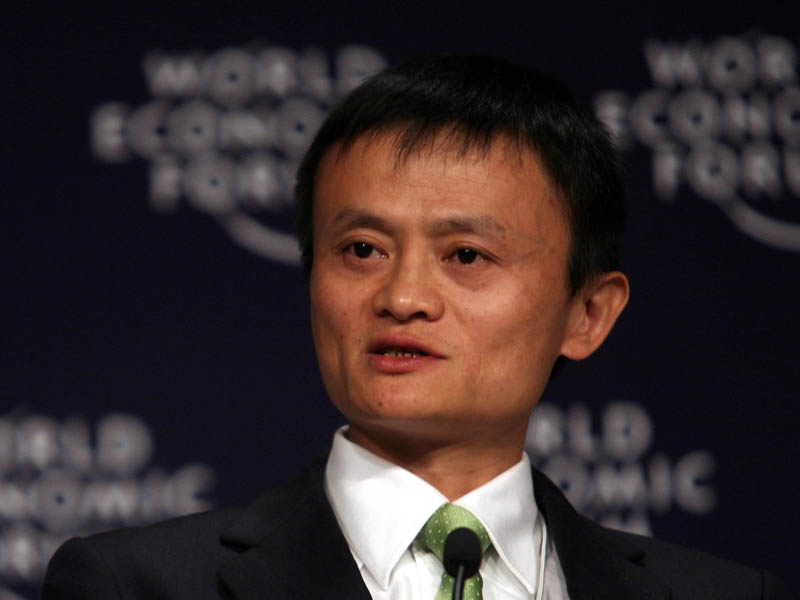Mid-way through the world’s biggest shopping festival seems a weird time to declare that Alibaba is no longer an eCommerce company, but that’s the argument that Alibaba Group chief marketing officer Chris Tung was making in Shanghai on Saturday.
The company’s famous Singles Day 11.11 shopping festival had been smashing sales volume records all day.
Alibaba’s payments subsidiary Alipay had processed a gross merchandise value (GMV) of more US$17.8 billion just after 1 pm, breaking the record set last year with nearly 11 hours of sales still to go.

At its peak, Alipay was processing a record 257,000 transactions per second – more than double the transaction record it had set for itself a year ago. More than 43 million delivery orders were generated in the first ten minutes, and the event topped US$10 billion in sales in just over an hour.
With a couple of hours of the festival still to run, more than 750 million orders had been placed (with about 85 per cent already processed routed by Alibaba’s Cainiao logistics subsidiary) and an army of millions of delivery personnel had been pressed into action.
The 11.11 festival finished with a gross merchandise value of US$25.4 billion, an increase of more than 42 per cent over the year ago event.
This is an extraordinary, stunning number.
So yes, it seemed a weird time for Chris Tung to be making the case that Alibaba was no longer an eCommerce company. But of course it’s true.
The Alibaba Group is an eCommerce company in the same way that Amazon is an online bookstore.
As the group’s chief marketing officer, it’s all about the data, Mr Tung said. Ecommerce, whether in the form of its B2B roots or its Singles Day Taobao and Tmall B2C operations, is just a component.
According to Mr Tung, the focus is now about the gross sales whether they are made in the online of offline worlds.
The company aimed to provide the same data-based automation and customer experience improvements that have driven online retail improvements, and put them into the offline world.
The company’s Alipay is a giant in financial services. AliCloud is an AWS equivalent. Cainiao is a logistics and fulfillment behemoth. It has launched merchant information systems for the online and offline world. It sells cloud-based marketing automation and consumer management system that leverage its massive customer transaction data.
What does this extravaganza mean for Australia? Not much if we’re not paying attention.
But the 11:11 spectacle highlights the power of low cost platform technology. For SMEs, these platform open up global trade opportunities that were previously out of reach.
The 11.11 Singles Day shopping festival began in 2009 in the earliest days of Alibaba’s Toaboa venture into the B2C sales. It was a marketing exercise, of course, and it still is (albeit one that has enjoyed spectacular success.)
“11.11 began as promotional campaign for Tmall,” Alibaba Group chief executive Daniel Zhang said. “We were at the very early stage of our B2C business. Many people ask me how we came up with this idea, and my honest answer is…survival,” he said.
“At that time, Taobao Mall was a young business and few people knew what it was. So we wanted to create an event to get people to recognize us and remember us.
“This year’s 11.11 is a preview of the future of retail, where entertainment, commerce and interactive engagement intersect,” Mr Zhang said.
“11.11 showcased how online and offline retail will be reinvented to offer brand new shopping experiences to our hundreds of millions of mobile, digitally savvy active users.”
As it happened:
- After one minute: The number of delivery orders generated has reached 3.83 million, 1 minute after the start of the 2017 11.11 Global Shopping Festival, according to data from Cainiao Network
- After 5 mins 22 secs: Alipay set a new world record with 256,000 payment transactions processed per second, a year-on-year growth of more than 101 per over the peak at 11.11 a year ago
- After 7 mins, 23 secs: Number of payment transactions processed by Alipay exceeds 100 million, the equivalent to the total number of transactions processed during the 2012 Singles Day event
- After 10 mins: More than 43 million delivery orders had been generated 10 minutes after the start of 11.11 Singles Day, according to data from Alibaba’s logistics unit, Cainiao Network
- After 33 mins, 15 secs: The first cross-border delivery to China of the 2017 11.11 Global Shopping Festival arrived just 33 minutes and 15 seconds after midnight
After 1hr, 9mins: Gross merchandise value (GMV) had exceeded US$10 billion (in just over one hour) - After 13hrs, 9mins: Alibaba announces it has exceeded US$17.8 billion in gross merchandise value (GMV), passing last year’s record with just under 11 hours still to go in the festival – More than 90 per cent of orders have been placed using mobile devices
- After 20hrs, 15 mins: The number of deliver orders generated passed 700 million – well above the 657 million processed on Singles Day in 2016
- After 23 hours: Gross Merchandise Value (GMV) break through the US$24 billion ceiling, with an hour left for consumers to buy. 90 per cent of transactions were made on a mobile device
- After 24 hours: Gross Merchandise Value closes the Singles Day global shopping festival at US$25.4 billion, an increase of more than 42 per cent over the 2016 result
James Riley traveled to Shanghai as a guest of Alibaba Group
Do you know more? Contact James Riley via Email.

